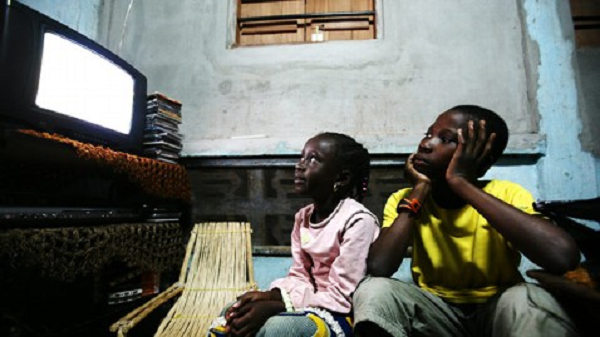
‘Control time children spend to watch TV programmes’
Ghana Girl Guides Association (GGGA) has expressed worry about the emerging trend where schoolchildren are allowed by their parents to watch all kinds of television programmes, especially telenovelas, without any supervision.
The association has, therefore, called on parents to show more concern in the development of their children by monitoring the kind of programmes they watch on television.
In an interview with the Daily Graphic after a ceremony to climax this year’s World Thinking Day in Accra, the Chief Commissioner of GGGA, Ms Zakiya Abdul Wahab, said most children had become addicted to watching television programmes that would not in any way help their growth.
“Children are now spending the early years of their life watching telenovelas and irrelevant television programmes that do not contain any educative information. You see them discussing these programmes with their colleagues every day,” she said.
Ms Wahab said although there were a lot of educative and interactive programmes on television, most children whose parents had a busy schedule and often returned from work late spent their entire evening watching telenovelas.
“There are some parents who will sit down with these schoolchildren to watch the programme. They do not see anything wrong with allowing their kids to spend their formative years watching such programmes on television,” she said.
Urgent attention
Suggesting measures to address the problem, Ms Wahab called on stakeholders in the education sector to partner owners and operators of television stations to design ways of addressing the problem.
She particularly urged television owners to pay attention to the airing time of those foreign programmes, adding that it would benefit the children more if such programmes were shown late in the evening.
“If such programmes can be shown later in the evening when the children are asleep, it will go a long way to help our children to concentrate more on important things that will build up their minds,” Ms Wahab said.
Throwing more light on the World Thinking Day, she said every year, “a day is set aside for Girl Guides and Girl Scouts around the world to come together to learn and interact with one another.”
“We would like to grow the World Thinking Day celebrations and invite more girls and young women around the world to experience what it means to be part of the Girl Guiding and Girl Scouting Movement,” she said.
This year’s event, Ms Wahab said, was aimed at supporting Girl Guide and Girl Scouting groups and introducing the movement to new members.
About 700 children from different schools in the Greater Accra Region participated in the programme. Various fun games were held to enable the schoolchildren learn how to socialise with new people.
